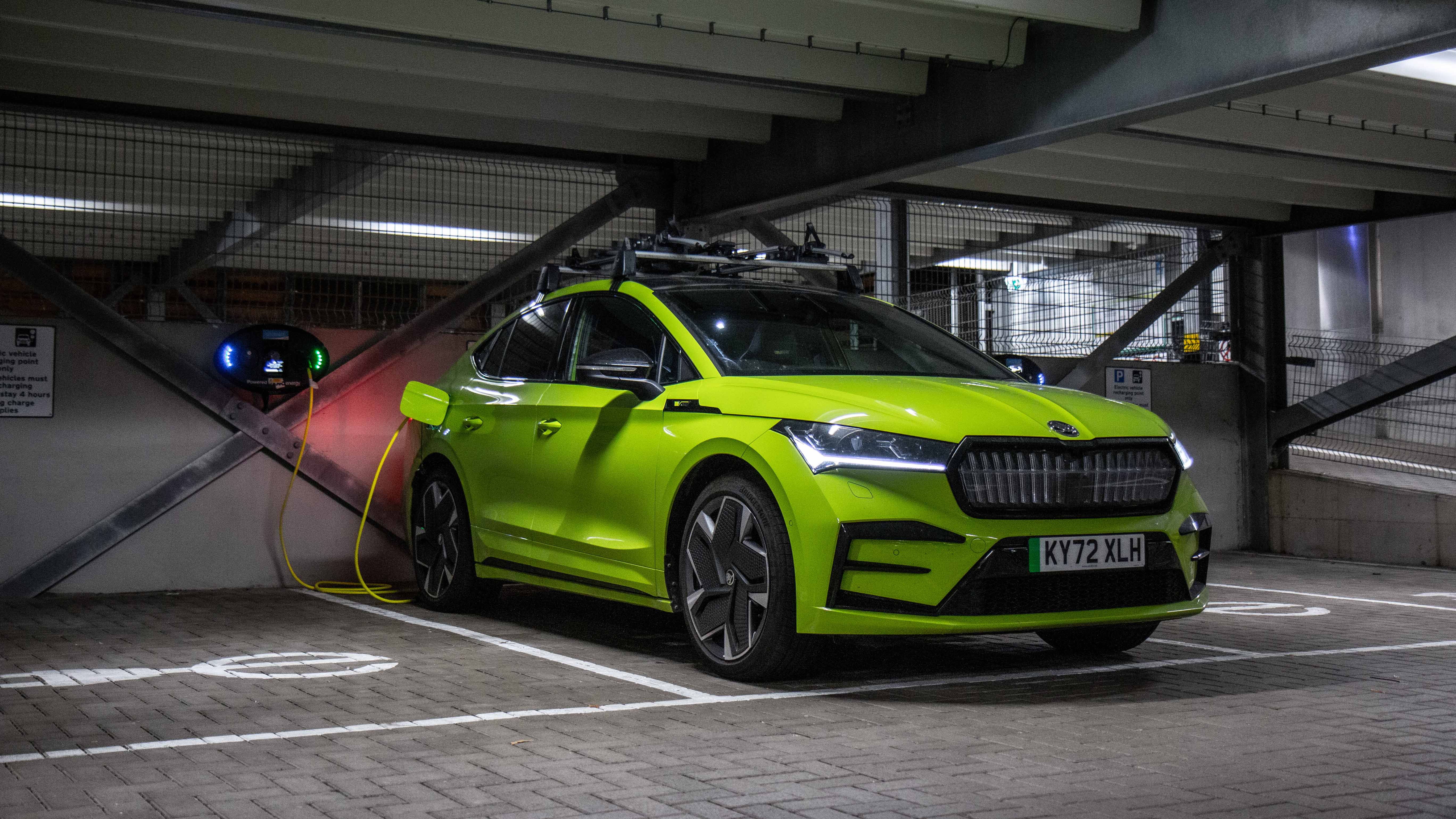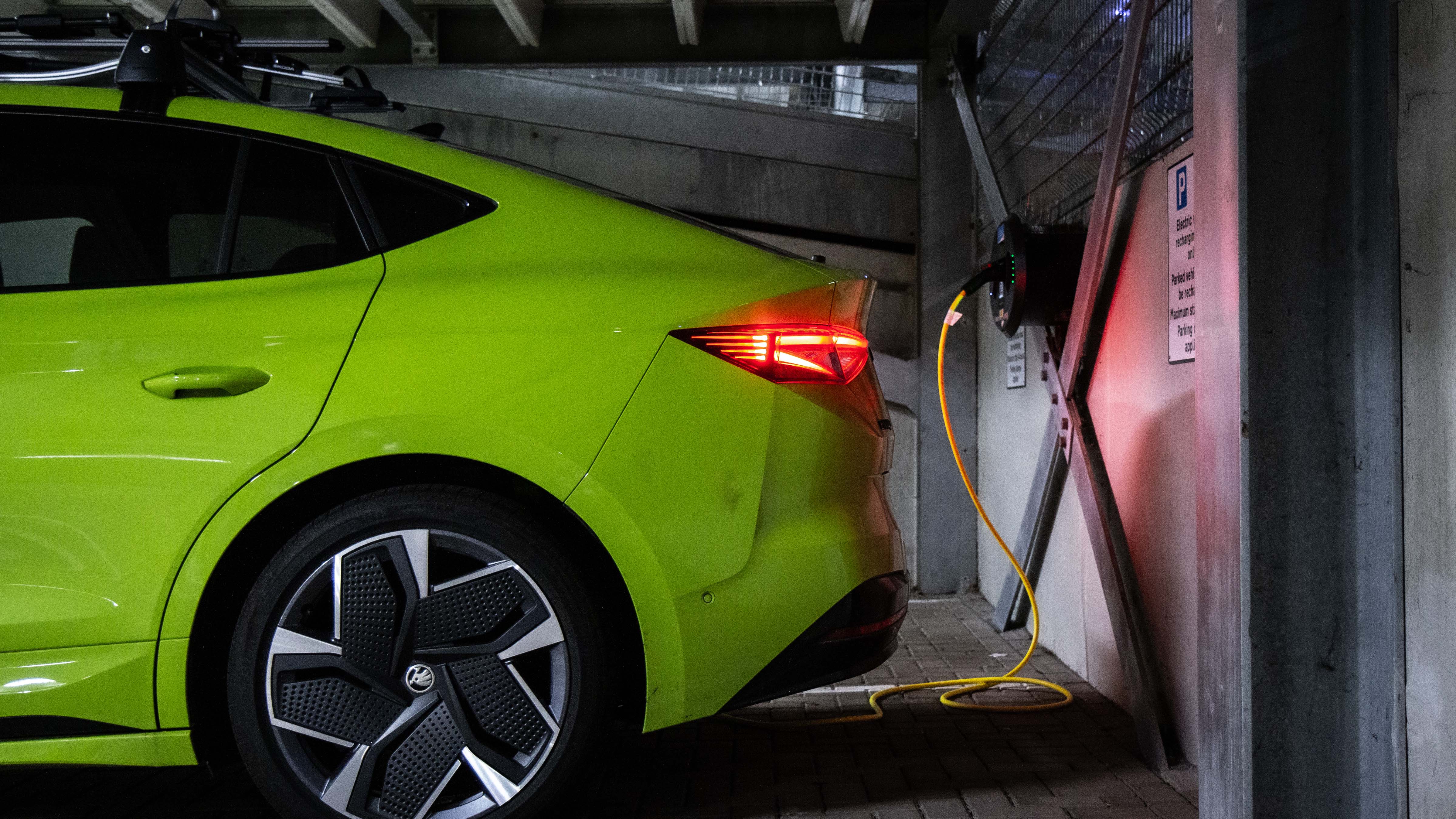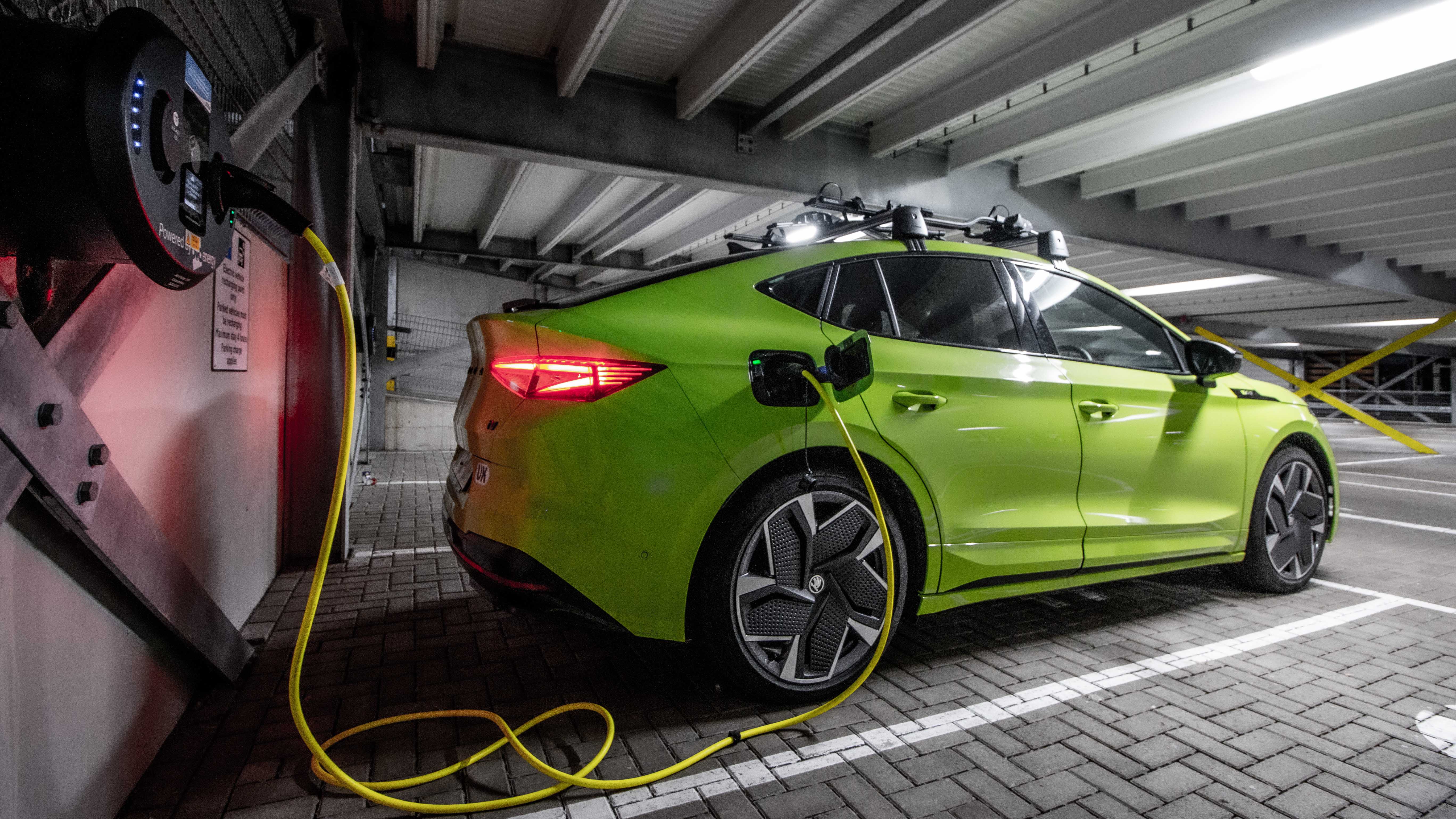
Wow, public EV charging in the UK is terrifyingly expensive right now
I’m aware we spend a lot of time detailing the issues and challenges of EV motoring. Especially in the case of the Enyaq vRS, which, in its first few months with us, suffered more than its fair share of issues and challenges.
But with the ‘Yaq back to full health and functioning flawlessly, maybe it’s time to celebrate the good stuff about EV motoring. Because there’s plenty to like.
Yes, pretty much every new family-sized electric car on the market offers more power and off-the-line acceleration than any regular family could ever reasonably need, but for me, it’s the low-speed EV stuff that’s most gratifying.
If you like your air clean – and call me a yoghurt-weaving eco-militant, but I’m a fan – it’s a gratifying sensation to stop-start your way through urban traffic while generating precisely zero tailpipe emissions. Not an original observation, I know, but one worth remembering as we turn apoplectic over, say, EVs’ plummeting range in cold weather.
My family runabout is a knackered old diesel Fabia (a black-pump supermini! What a throwback, right?). After silently wafting about in the Enyaq, it’s genuinely slightly shocking to fire up the old Fabia and be assaulted by the noisy, thrumming, old-school commotion of turning complex hydrocarbons into motion. Running an EV is, at the very least, a more pleasurable experience for the other people living on your street.
So, yeah, EV driving I’m greatly enjoying. EV recharging, not so much. As previously mentioned, I’m using public charging to juice up the Enyaq (no driveway or wallbox here). And wow, is public charging expensive right now.
At the time of writing, the cost of fast-ish charging in the UK stands at around 70p per kWh. Some are worse: my local BP ‘facility’ demands 79p/kWh for the privilege of charging at a real-world 30kW. But let’s give electric the benefit of the doubt, call it 70p.
Drive the Enyaq with a modicum of caution, and you’ll get around 3.5 miles per kWh (in summer at least). Which means, using public charging, you’re paying 20p per mile. Even if you can stretch your efficiency to 4mpkWh, that’s still 17.5p per mile.
At the time of writing, petrol’s running at about £1.45 per litre in the UK. That’s below the insane price spikes of last summer, but still historically high.
If you drove an Enyaq-sized petrol SUV with that similar modicum of caution, I reckon you’d get 45mpg. (I’m sure someone with a bigger brain than mine could figure out the precise corresponding efficiency ratios, but real-world experience tells me it’s in that ballpark.)
45mpg at £1.45 per litre is – to mix measurement units in traditional British fashion – about 14p per mile. Even if you only managed 40mpg, that’s just over 16p per mile. So still cheaper than electric.
Home charging, completely different story. A friend (with his own driveway, the flash lad) recently bought an MG4, and renegotiated his home energy tariff at the same time. He gets seven hours of off-peak electricity a day, costing him – ready for this? – 7p per kWh. A tenth the price of public charging!
So he can plug his EV into his 7kW wallbox overnight, and add 49kWh of range (not far off a two-thirds charge in the Enyaq) for the grand price of… £3.43. About 170 miles of range, for the price of a Starbucks coffee.
I understand the UK’s sky-high public EV charging costs aren’t just the result of charge providers’ wanton profiteering. TG’s resident electro-sage, Paul Horrell, says part of the problem is that, in Britain at least, electricity prices are pegged to wholesale gas costs. No doubt there are good reasons for this, but it does sound rather like pegging tofu prices to the cost of beef.
I don’t know what the solution is. I mean, I do: cheaper public charging, please. How we achieve this, no idea. But until we do, EV ownership won’t make financial sense for a whole lot of people.
Featured

Trending this week
- Car Review
BMW iX3






